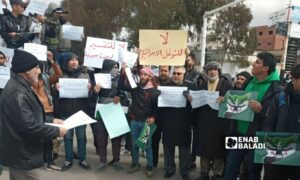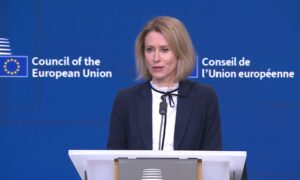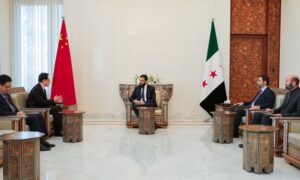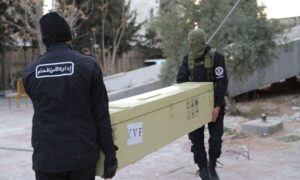
Turkey’s two official threats against al-Assads strain relations between Turkey and Syria

22 Years ago, Turkey made direct threats to the former Syrian President, Hafez al-Assad, via deploying its military vehicles and troops on its border with Syria. The tension between the relations of the two countries was resolved through the signing of the Adana agreement on 20 October 1998, in conditions similar to what is happening today in Syria’s Idlib; the Syrian regime is trying to advance to the Turkish borders, while Turkey is sending its military reinforcements to the region, foreshadowing a military attack against the Syrian regime.
The Syrian regime forces continue to advance in opposition-held areas in northern Syria. In the past few weeks, the regime took control of more than 30 towns and cities in Idlib, including strategic cities, such as the city of Maarat al-Numan; the largest city in the southern Idlib countryside, and the city of Saraqib in the eastern countryside, located on the intersection point of the two international highways, Damascus – Aleppo (M5) and Latakia – Aleppo (M4).
The rapid military progress of the Syrian regime force comes despite Turkish President Recep Tayyip Erdogan’s threats on two separate occasions. In the past few days, Turkey warned that it would use military power to drive back Syrian regime troops unless they withdrew behind the lines set by the Sochi agreement signed between Russia and Turkey in September 2018.
The Sochi agreement provides for the creation of a demilitarized zone, 15 to 20 kilometers (9- 12 miles) deep within the “de-escalation” zone in the Idlib de-escalation zone.
Erdogan said that Turkey had given the Syrian regime forces until the end of February to carry out its withdrawal.
On 5 February, Erdogan told his Russian counterpart, Vladimir Putin, threatening that the Turkish Armed Forces (TAF) will “do what is necessary” if the Syrian government did not pull back its forces behind Turkish observation posts in Idlib. Erdogan considered this escalation as a “new era in Syria” that Turkey will live by launching a military operation in the province of Idlib.
Ankara waged a war of words against the Syrian regime after 13 Turkish military personnel were killed in an airstrike carried out by the Syrian regime forces on the besieged Turkish military observation posts in Murak in rural Hama, the southern Idlib countryside near Maarat al-Numan and the vicinity of the city of Saraqib.
History of tensions between Turkey and Syria
Erdogan’s threats bring this history of Syrian-Turkish tension to the forefront, from August 1957, when Turkey mobilized thousands of soldiers on its southern border, to prevent the Syrian government headed by Shukri al-Quwatli from aligning with the Communist camp.
This crisis was over with Syria intensifying its relations with Arab countries by signing the unity agreement with Egypt in 1958.
The tension between the two countries remained high because of the dispute that arose over the Euphrates River. The Euphrates River originates in the Armenian Highlands of northeastern Turkey. It flows through Syria and Iraq, which means that Turkey mainly controls the pumping and flowing levels of the river.
In 1990, Turkey diverted the flow of the Euphrates River water to fill the Atatürk Dum for one month. Therefore, the water level in Lake Assad dropped more than three meters, affecting the region’s winter crops adversely.
The dispute over the Euphrates River was settled by signing a security protocol (water-sharing treaty)between the two countries in 1992. However, the agreement was canceled for Turkey continued carrying out its projects on the Euphrates banks, which resulted in the use of the Kurds by Hafiz al-Assad as a pressure card on Turkey. Besides, al-Assad sought to provoke Ankara by supporting the activities of the Kurdistan Workers’ Party (PKK) in Syria.
The threat of 1998… Patience is finite
Turkish Deputy Prime Minister and Minister of Defence, İsmet Sezgin, said, “patience is finite,” in October 1998, threatening to invade the Syrian border and eliminate the activity of the “PKK.”
Sezgin’s speech came after the Turkish National Security Council decided at that time to pursue a resolute stance towards Syria, warning that with the end of diplomacy, Turkey “will play the game according to its laws.”
Hafez al-Assad was subjected to this threat by banning the activities of the PKK on Syrian soil. Moreover, al-Assad cut ties with the PKK by shutting down its training military camps in Syria and Lebanon as well as cutting financial support to the PKK.
Furthermore, Syria forced Abdullah Öcalan, the leader of the PKK, to leave Damascus. In other words, al-Assad handed him over to the Turks, indirectly, by deporting him to Russia. And when Öcalan was in Kenya, The Turkish intelligence kidnapped and captured him there in 1999.
Öcalan has been serving a life sentence on İmrali island prison in Turkey since 1999 on terrorism and treason charges.
In 1984, Ankara provided an opening for diplomatic moves aimed at ending the quartering of the PKK by al-Assad. Al-Assad denied his support for the PKK even though Öcalan was interviewed by several international media outlets from his location in the capital, Damascus.
Öcalan’s popularity continued to increase in Syria at that time. Al-Assad, to pressure Turkey, allowed the PKK to launch its military operations from its military bases in northern Syria against the TAF. Therefore, the PKK is listed as an international “terrorist organization” by numerous countries, including Turkey, the European Union, and the United States.
Ankara rejects the support of al-Assad to the PKK according to the provisions of international legal data. According to the United Nations Office on Drugs and Crime and Terrorism Prevention (UNODC), UN member states should commit to extraditing or prosecuting persons affiliated with terrorist organizations, and extending jurisdiction to prosecute the perpetrators of terrorist acts. The member states of the UN have to cut off their financial networks and channels directly or indirectly. They should also cut cooperation with terrorist organizations, something that Ankara has been asking for over the years.
Al-Assad decided to expel Öcalan and negotiate with Turkey because he feared the terrible force of the Turkish army, and to avoid further tensions between the two countries at that time, At that time, Turkey was preparing to wage war and penetrate northern Syria, according to an article published by the journalist Sinem Cengiz, on 25 January 2019.
Al-Assad’s negotiation with Turkey paved the way for the signing of the secret security “Adana” agreement at the time, between Damascus and Ankara, on 20 October 1998, through regional and international mediators, especially Egypt.
Adana Agreement
The security agreement was a significant turning point in the track of relations between Turkey and Syria. Mutual visits began between the two countries at the level of security, military and political officials, the first of which was the presence of the Turkish President Ahmed Necdet Sezer at the funeral of Hafez al-Assad in 2000. Sezer’s visit was a vital sign of new relations with Syria, which has deteriorated again since the beginning of the Syrian revolution in 2011.
The Adana agreement has been put back on the negotiation table after Turkey has a definite military presence inside the Syrian territories and its intention to establish a “safe area,” east of the Euphrates River in northern Syria, in agreement with Washington. The Turkish President, President Recep Tayyip Erdogan, called for discussing the Adana agreement again on 24 January 2019.
Turkey wants to set up a “safe area” at a depth of 32 kilometers (km), meaning an increase of 27 km from the provisions of the “Adana” agreement, in an attempt by Ankara to expel the “People’s Protection Units” (Kurdish), which it considers an extension of the “PKK.”
With the signing of the agreement, Syria and Turkey need to work together to counter-terrorism. In addition, Syria recognized the PKK as a terrorist organization. It obliged itself not to provide the PKK any support and prevent the infiltration of its fighters into Turkey.
The second term of the agreement states that Turkey reserves its right to defend itself and to seek compensation for the loss of life and property if Damascus does not stop its support to the PKK immediately.
The third item gave Ankara the right to “track down the terrorists” at a depth of five kilometers in northern Syria and to take the necessary security measures if its national security was endangered. Syria was unable to combat the party’s operations.
As for the fourth item, it stipulates that the border disputes between the two countries are considered ended from the date of signing the agreement and that the two parties will not claim the territory of the other party, which is why the Syrian regime abandoned the Sanjak of Alexandretta.
Is the situation changed with the son of Hafez al-Assad, Bashar?
On 12 February, Syria’s’s official state news agency SANA quoted a source at the Syrian Foreign Ministry as saying that Erdogan’s’s statements are “empty, hollow and wavy, that are only issued by a person who is disconnected from reality, not understanding the course of affairs and matters.” Moreover, Erdogan’s statements “only indicate ignorance in threatening to carry out a military operation in Idlib and hit Syrian army troops,” the source added.
With the support of the Russian air force, the Syrian regime forces have made rapid advances in the province of Idlib, capturing cities and towns.
Russia justifies its military action because of the presence of the Hay’ at Tahrir al-Sham (HTS) in Idlib, which controls large areas of Idlib and its countryside. It is considered as “terrorist” organization by Russia, Turkey, and the US.
Several armed groups—including Iranian militias affiliated with Iran’s Islamic Revolutionary Guard Corps (IRGC)—support the Syrian regime forces, through playing a pivotal role in making progress in battles against the Turkish-backed opposition factions in western Aleppo and the eastern countryside of Idlib.
The independent Macro Media Center published a set of audio recordings believed to belong to the talks of some Afghan fighters who are taking part in a battle against the armed opposition faction in Idlib.
Telegraph, a national UK newspaper published on 26 January, leaked recordings that reveal how Iranian soldiers and Afghani mercenaries are directing military operations in Idlib.
On the other hand, Turkey continues to send military reinforcements on a daily basis and set them up in the cities and towns in the opposition-held Idlib or in the military checkpoints, which are established under the “Sochi” agreement with Russia.
Turkey takes the Adana agreement as a legal justification to enter Syria, using the right of self-defense under international law. However, the government of the Syrian regime considers the Turkish incursion into Syria a violation of the Adana agreement. According to the regime, the agreement aimed at ensuring security in the border areas between Syrian and Turkey and “combating terrorism” in cooperation with the Turkish army. After that, the TAF has to withdraw from Syria.
SANA also quoted a source at the Syrian Foreign Ministry as stating on 5 February, that the regime “denounced” the statements of Erdogan regarding the entry of TAF into the region according to the Adana agreement.
Turkey is attempting to impose new conditions to play pressure cards on the negotiating table with Russia through a new agreement, a new agreement that allows Turkey to intervene more in Syria than the provision of the Adana agreement. Furthermore, Turkey tries to enhance its national security via consolidating its (military) presence in the province of Idlib, as this province is considered a border region. Enab Baladi reached this conclusion in an investigation, titled “Idlib is hostage for two guarantors… Who will claim victory?”
if you think the article contain wrong information or you have additional details Send Correction
النسخة العربية من المقال
-
Follow us :

















 A
A
A
A
A
A








 More Politics
More Politics